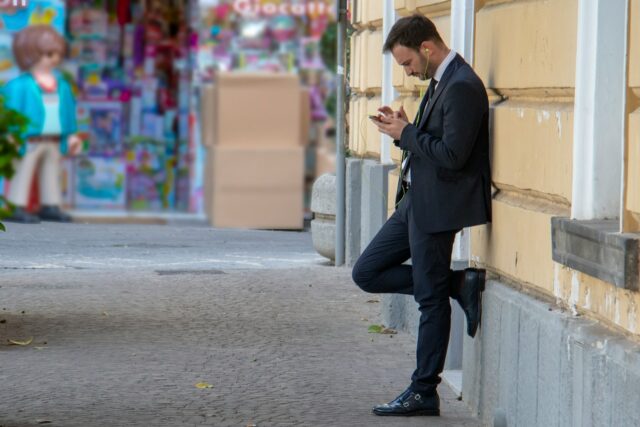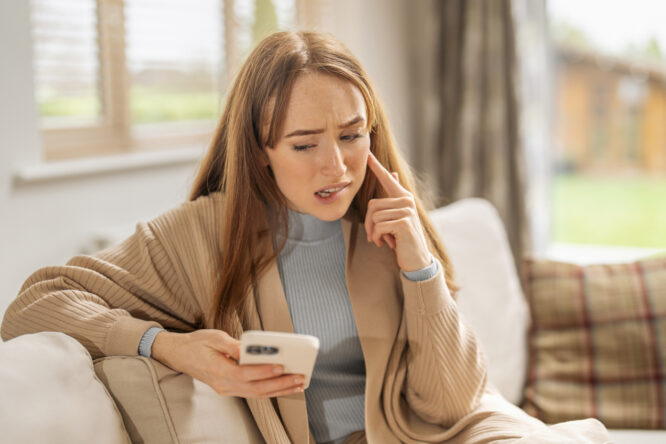Texting’s handy for quick chats, memes, and sorting plans, but if you’re after real connection, it falls short.
 Source: Unsplash
Source: Unsplash It’s not that it’s bad—most of our communication takes places via text these days, so you’re bound to use it at some point. However, some things need more than words on a screen, and starting a new relationship with someone is one of them. Maintaining a relationship with someone you care about is another. Here’s why texting alone won’t cut it when it comes to actually feeling close to someone.
1. You lose tone and emotion.

There’s no way to hear someone’s voice or see their face when you’re texting. A joke can sound snarky. A neutral message can feel cold. It leaves too much room for guessing how someone meant something. In person, a smile, a laugh, or even a sigh fills in all those blanks. It’s those little things that help you feel connected—and they’re completely missing in a text thread.
2. The flow is always off.
 Source: Unsplash
Source: Unsplash Texting happens in fits and starts. You might send a message at lunch and get a reply at dinner. By then, the moment’s passed and the vibe’s changed. Conversations just don’t move naturally that way. When you’re face-to-face or even on a call, you stay in sync. There’s rhythm, timing, and proper back-and-forth. With texts, you’re always a step out of time.
3. It starts to feel one-sided
 Source: Unsplash
Source: Unsplash If you’re the one sending long messages and getting dry replies back, it can feel like you’re doing all the emotional work. You start wondering if they’re even that into the conversation. That kind of imbalance is hard to spot when you’re texting. But in real life, it’s way easier to tell when someone’s engaged, or just not present.
4. Big feelings don’t land well.
 Source: Unsplash
Source: Unsplash Texting about something emotional can leave you feeling more exposed than supported. You open up, and then… a short reply, or none at all. It’s not always because the other person doesn’t care, but it still stings. When you’re talking in person, you get reactions—nods, hugs, understanding looks. Texts can’t give you that. Vulnerability needs more than a screen.
5. Silence feels like rejection.
 Source: Unsplash
Source: Unsplash In person, silence can be peaceful. On text? It feels like being ghosted. You’re left checking if they read it, if they’re annoyed, or just forgot to reply. There’s no such thing as a “comfortable silence” in texting. Every pause feels loaded, even if it’s not meant to be. It’s hard not to take that personally, even if you logically know it’s no big deal.
6. It’s way too easy to misread.
 Source: Unsplash
Source: Unsplash Your mood shapes how you read messages. Feeling anxious? Even a friendly message can sound off. Annoyed? A joke might come across as passive-aggressive. Without tone or body language, your brain fills in the gaps, and it doesn’t always get it right. That can cause tension that wouldn’t happen in person.
7. You end up filtering yourself.
 Source: Unsplash
Source: Unsplash Texting gives you time to craft the “right” response. However, that also means you’re less likely to just say what you mean. You edit, you overthink, and it stops being real. Face-to-face chats are messy in a good way. You say things as they come. That’s where real connection happens, not in the perfectly worded reply.
8. Laughing together isn’t the same.
 Source: Unsplash
Source: Unsplash Typing “haha” isn’t the same as actually laughing with someone. That full-belly, face-cramping kind of laugh just doesn’t hit through a screen. Shared laughter builds closeness fast. It’s spontaneous, contagious, and full of energy. Texting just doesn’t capture that same magic.
9. It fakes closeness.
 Source: Unsplash
Source: Unsplash Constant texting might feel like connection, but if you’re only talking in messages, you might not actually know each other that well. You’re just filling time, not building depth. Being in each other’s real space, even for short moments, builds something stronger. You need both to feel truly close, not just a constant stream of messages.
10. Fights over text drag on.

Texting during an argument is a minefield. Without tone or timing, everything can get twisted. You might mean something calmly, but it reads harsh. Then things spiral. In person, you can read the room, explain yourself better, and pick up on when to soften. Texting just extends the drama longer than it needs to go.
11. It doesn’t cure loneliness.

You’d think texting would help when you feel disconnected, but sometimes it makes it worse. You send a message, hoping for comfort, and the response is flat or late. Ouch. When you need real support, a chat over coffee or a phone call hits differently. Quick texts can’t replace actual presence when you’re struggling.
12. It kills spontaneity.

Great connections often come from random moments—unexpected chats, spontaneous plans, inside jokes that just happen. Texting doesn’t allow much room for that. When you’re with someone in real life, things unfold naturally. That kind of unplanned, real-time spark just doesn’t translate over messages.
13. It stays surface-level.

Text convos usually stick to updates, plans, and light chatter. That’s fine, but it rarely goes deeper unless both people push for it, which most don’t. The best connections grow in conversations that get honest and raw. That kind of depth is hard to reach without eye contact, pauses, and real energy in the room.




